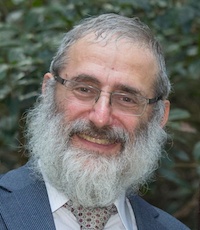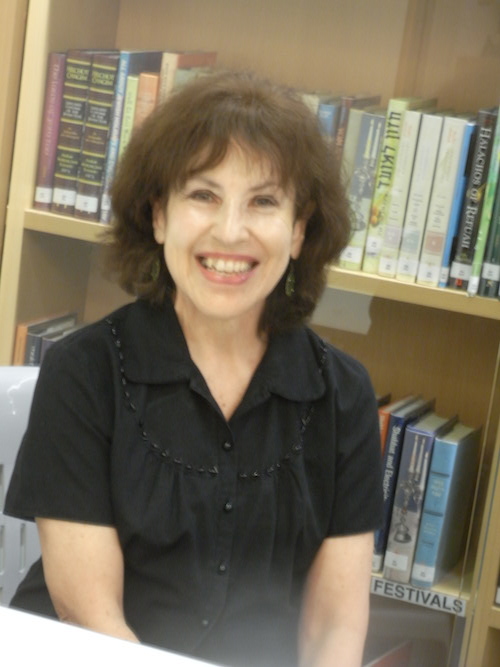Make It Count
13/05/2016 12:10:50 PM
 |
||||||||||||
 |
 |
 |
 |
|||||||||
 Rabbi's Message Rabbi's MessageMake It Count Dear [first_name] During the current 50 day period between the Festival of Pesach and the Festival of Shavuot, we count each day - Sefirat HaOmer. What is the reason for this counting? When the Jewish People left Egypt they were told by G-d that their physical redemption (the Exodus from Egypt) was soon to be complemented with an unprecedented spiritual Revelation in which G-d A-lmighty Himself would speak to them (the Giving of the Torah). Upon hearing this they eagerly counted each day - another day closer, another day closer, etc. And so, each year, as we prepare to once again receive the Torah, we re-enact this count down. While this is a beautiful explanation it leaves a number of questions unanswered. If it is indeed true that they were counting DOWN to the Revelation of Sinai, then why is it that we count UP? Why do we say “Today is 24 Days of the Omer”(meaning since Pesach) when we should really be saying “Today there are 24 days left until Shavuot”? Furthermore, why do we use the cardinal “Today is 24 Days”? Surely we should use the ordinal “Today is the 24th Day”? Finally, if we are counting towards the fiftieth day, why is it that in actuality we only count 49 days? To get a grip on this, we first need to understand a strange verse in the Bible. Concerning Abraham it is written, “And Abraham was old, coming in days”. Now we know that no word in the Torah is superfluous, so why the additional phrase “coming in days”? It doesn’t seem to add anything! According to the Holy Zohar, however, it is very meaningful. There are many people who are old, but have really achieved very little in their lives. Long lives, but empty days. Abraham was not like that. He lived a long life with full days. The Hebrew phrase “coming in days” can also mean “coming with days”. He “carried” his days with him. He didn’t pass time. He filled time! In a similar vein, as we approach the Giving of the Torah, it is not sufficient to merely count down the days. That is not a preparation for the Revelation of Sinai. We have to come to G-d prepared. We need to fill each and every one of our days with good and holy activities so that we don’t arrive empty-handed. And it is for this reason that we count up and not down, and that we use the cardinal numbers rather than the ordinal numbers. It is as if we are saying, “Today we have achieved one days worth, Today we have achieved two days worth...Today we have achieve twenty-four days worth, etc.” until on the last day we say, “Today we have achieved forty-nine days worth.” Still, the final question remains unanswered. Why is it that we do not count the fiftieth day? And here there is an important lesson that we can all learn from. In Yiddish there is an expression, “Mir darfen tohn, der Aibishter vet auftohn” - “We need to do, it’s up to G-d as to whether we achieve”. Far more important than the destination is the journey. Whether we arrive at the destination is G-d’s affair. Our business is to do everything that we possibly can to try to get there. And so the fiftieth day, the Giving of the Torah on Sinai, is G-d’s affair. Doing everything we can to get to Sinai is ours. These lessons are of course not only relevant during the Sefira counting period, but every day of our lives. We must be deeply committed to achieving the goals that G-d has set for us in life, both spiritual and physical. They must be the shining sign-posts of our lives. But we cannot just dream of achieving them. Once we understand where we have to go, we must slowly, step by step, day by day, invest all our energy in implementing whatever is necessary in attaining the vision that we have set ourselves. Whether we actually achieve our goals or not is dependent on G-d, not us. It is not on this that we will be judged. What we will have to account for is on how much effort we have invested in travelling the road. With best wishes for a Good Shabbos on behalf of the Rebbetzin and all of us at South Head, Rabbi Benzion Milecki OAM. Youth Crew
We're Here For You!
Looking forward to seeing you in Shule! Shabbat Shalom Tzemach, Roli & Yeruchem For all information on all upcoming youth events please contact us on 9371-7300 ext 3 or 0412-482-770 or youth@southhead.org Every Jew Is An Example
Parasha Sheet Parashat Kedoshim The Parasha discusses various laws of the Torah. It introduces the prohibition of eating the blood of an animal. Torah law commands us to prepare Kosher meat in such a way that all the blood is drained out of the meat so that we don’t eat the blood. It is because of the Mitzvah that we check that our meat does not have blood on it. We also check our eggs to make sure that they do not have any blood spots inside. If a blood spot appears on an egg, the egg is not kosher and we are required to throw it away. When the egg is raw, the blood spot can be found on the yolk, and when it’s boiled, the blood spot can be found on the inside layer of the white part of the egg. Click here to read our Parasha sheet and learn all about the Parasha
 Recommended Library Reading Recommended Library ReadingThese Are The Names THESE ARE THE NAMES; Jewish Lives in Australia 1788 - 1850, by John S. Levi. The earliest generation of Jews to settle in Australia is presented in this biographical dictionary. More than 1500 Jewish men and women came to Australia as convicts or arrived as free settlers. This invaluable volume, which is for reference purposes only, was kindly donated to South Head Shule Library by Rabbi Sanford H. Shudnow. Shabbat Shalom |
|
666 Old South Head Rd Rose Bay, NSW 2029 (02) 9371 7300 |
HA'AZINU
Rose Bay, NSW 2029
(02) 9371 7300








